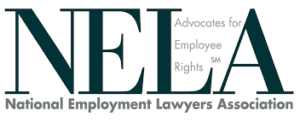Everyone is anxiously following the latest news about the coronavirus world-wide pandemic. Changes to our daily lives and our workplaces can feel overwhelming, and employee rights under the Americans with Disabilities Act (ADA) and the Rehabilitation Act have been affected.
The World Health Organization (WHO) has officially designated the COVID-19 virus a pandemic, and the Centers for Disease Control (CDC) has determined that COVID-19 is a “direct threat,” meaning that having an employee with the virus, or even symptoms of it, in the workplace could cause substantial harm. The combination of the WHO and CDC designations automatically triggered changes to some rights under the ADA for private workers and the Rehabilitation Act for federal employees; however, those changes do not include using COVID-19 as an excuse to discriminate.
Under normal circumstances, an employer cannot make disability-related inquiries or require medical examinations of applicants or employees, except in very limited circumstances. Those rules are now relaxed, and employers are permitted to take steps to prevent the spread of the virus, such as taking employees’ body temperatures, asking about recent travel, requiring employees to wear personal protective equipment, or sending symptomatic employees home. Employers may also screen job applicants for symptoms of COVID-19, delay a new hire’s start date, and in some circumstances, withdraw the job offer.
Employers are still required to provide reasonable accommodation during a pandemic unless a disabled employee poses a direct threat, even with the reasonable accommodation. The EEOC has encouraged employers and employees to use interim solutions, such as telework, to enable employees to continue working. The EEOC’s guidance can be found at https://www.eeoc.gov/facts/pandemic_flu.html on these and other changes to the ADA during a pandemic. The CDC has also posted about best practices that employers should follow to help curb the spread of the virus at https://www.cdc.gov/coronavirus/2019-ncov/community/guidance-business-response.html.
If you have concerns about your rights as an employee being violated during the pandemic, we’d be glad to consult with you.


